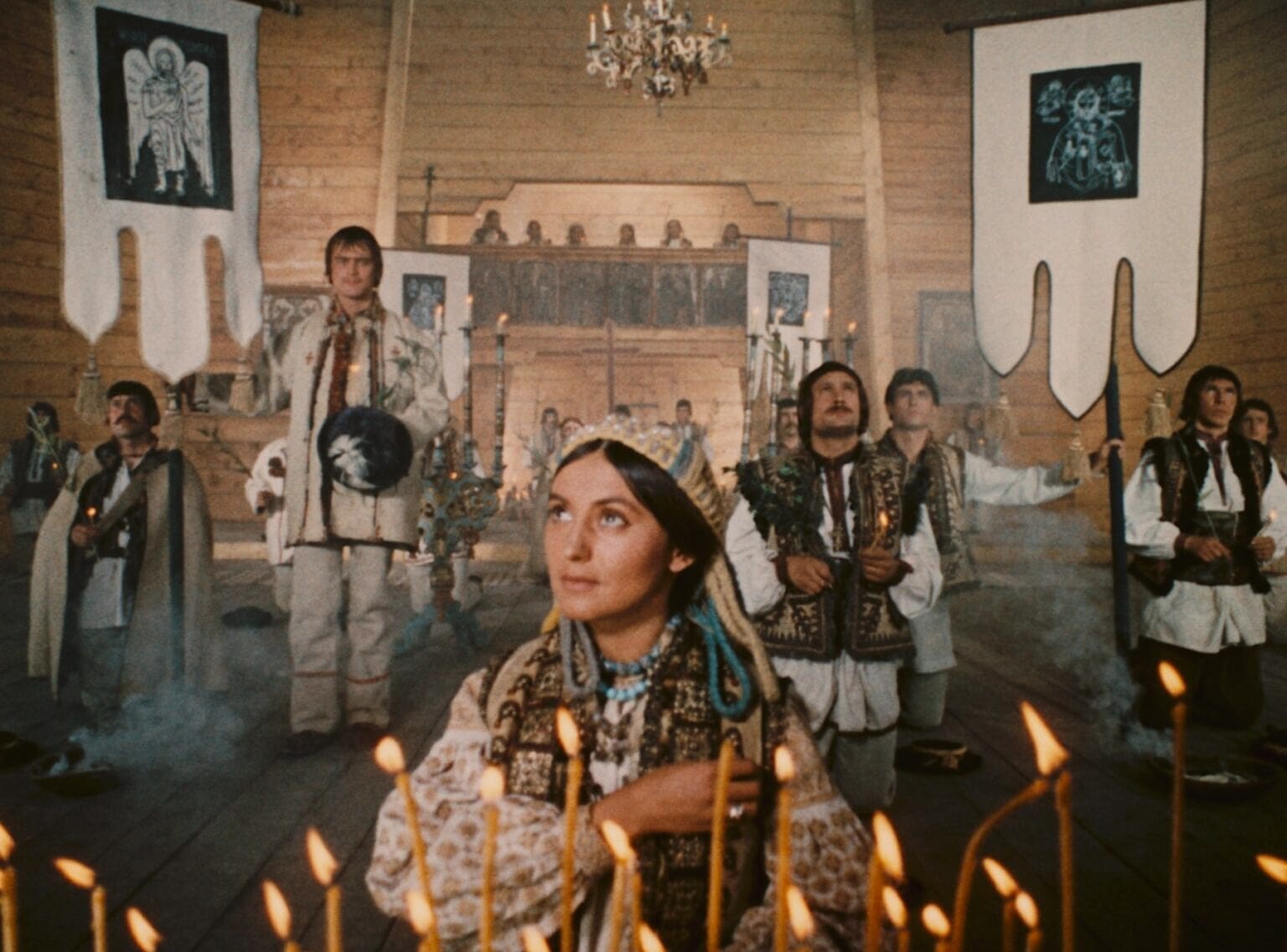Ukraine has a cinematic history both impressive and shadowy. So much of it has been obscured by affiliation with the USSR—which had a perpetually changing, confused, often punitive attitude towards whether non-Russian cultures and histories should be acknowledged onscreen at all, or subjugated to the notion of “party unity.” (Of course, Ukrainian cinema today is largely concerned with being re-invaded by its former minder, since KGB-trained Putin covets all former Soviet territories.) Ukrainian films were frequently banned for arbitrary supposed ideological-infractions, even after they’d been approved at the script stage and won initial acclaim. The same filmmakers might get the go-ahead for a new project—and the same process would happen all over again.
A crystallization of that absurd cycle was Yuri Ilyenko’s 1971 widescreen maximalist epic White Bird Marked Black, set in the Carpathian Mountains between 1937 and 1947. It was eagerly endorsed by officials for production, then nabbed a top prize at the Moscow Film Festival. Incredibly, it was subsequently banned by the Ukrainian Communist Party, as “the most harmful movie ever made in the nation” yet. For decades on end, censorship and propagandic aims served as a circular firing squad: the only certainly was that everyone would eventually get shot.






